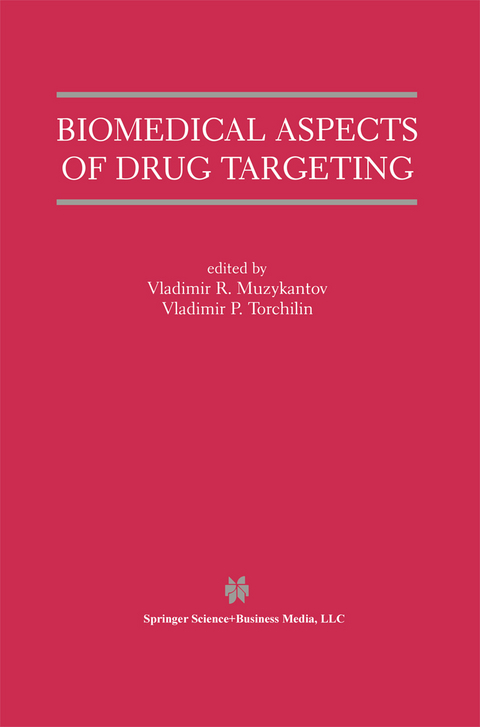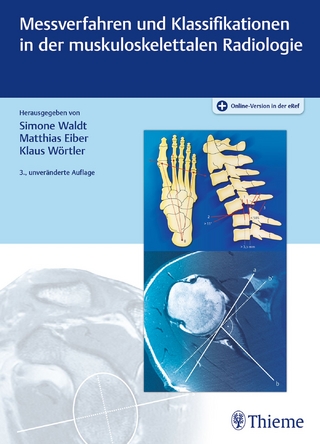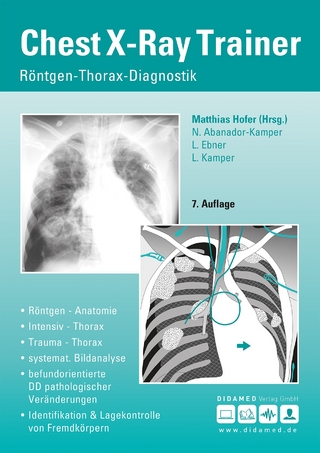
Biomedical Aspects of Drug Targeting
Springer-Verlag New York Inc.
978-1-4419-5312-4 (ISBN)
Section 1: General Principles of Drug Targeting.- 1 Strategies and Means for Drug Targeting: An Overview.- 2 Biological Barriers for Drug Targeting.- Section 2: Cardiovascular Targeting.- 3 Targeting the Pathological Myocardium.- 4 Targeting Atherosclerotic Plaques.- 5 Thrombus Targeting of Plasminogen Activators and Anticoagulants.- 6 Tissue-Specific Pharmacodelivery and Overcoming Key Cell Barriers in Vivo: Vascular Targeting of Calveolae.- 7 Targeting Pulmonary Endothelium.- 8 Targeting Inflammation.- 9 Intravascular Re-Targeting of Viral Vectors.- Section 3: Tumor Targeting.- 10 Polymer-Drug Conjugates: Targeting Cancer.- 11 Enhanced Permeability and Retention (EPR) Effect: Basis for Drug Targeting to Tumor.- 12 Ligand-Directed Destruction of Tumor Vasculature.- 13 Tumor Necrosis Treatment and Imaging of Solid Tumors.- 14 Targeted Apoptosis: Antibodies Linked to Rna Damaging Agents.- 15 Immunotoxins and Antibody-Drug Conjugates for Cancer Treatment.- Section 4: Targeting to Brain.- 16 Blood-Brain Barrier Transport and Drug Targeting to the Brain.- 17 LDL-Receptor Mediated Drug Targeting to Malignant Tumors in the Brain.- 18 Targeting Brain Trauma and Stroke.- 19 Targeting Drugs Into the Central Nervous System.- Section 5: Miscellaneous, New Horizons in Targeting.- 20 Strategies for Targeting Infection.- 21 Anti-HIV Immunotoxins.- 22 Ligand-Mediated Gastrointestinal Targeting.- 23 Transmembrane Targeting of Dna with Membrane Active Peptides.- 24 Polymersomes: A New Platform for Drug Targeting.- 25 Targeting Mitochondria.
| Erscheint lt. Verlag | 6.12.2010 |
|---|---|
| Zusatzinfo | XVII, 506 p. |
| Verlagsort | New York, NY |
| Sprache | englisch |
| Maße | 155 x 235 mm |
| Themenwelt | Medizin / Pharmazie ► Medizinische Fachgebiete ► Onkologie |
| Medizinische Fachgebiete ► Radiologie / Bildgebende Verfahren ► Radiologie | |
| Medizin / Pharmazie ► Physiotherapie / Ergotherapie ► Orthopädie | |
| Naturwissenschaften ► Chemie ► Organische Chemie | |
| Technik ► Maschinenbau | |
| Technik ► Medizintechnik | |
| ISBN-10 | 1-4419-5312-4 / 1441953124 |
| ISBN-13 | 978-1-4419-5312-4 / 9781441953124 |
| Zustand | Neuware |
| Haben Sie eine Frage zum Produkt? |
aus dem Bereich


